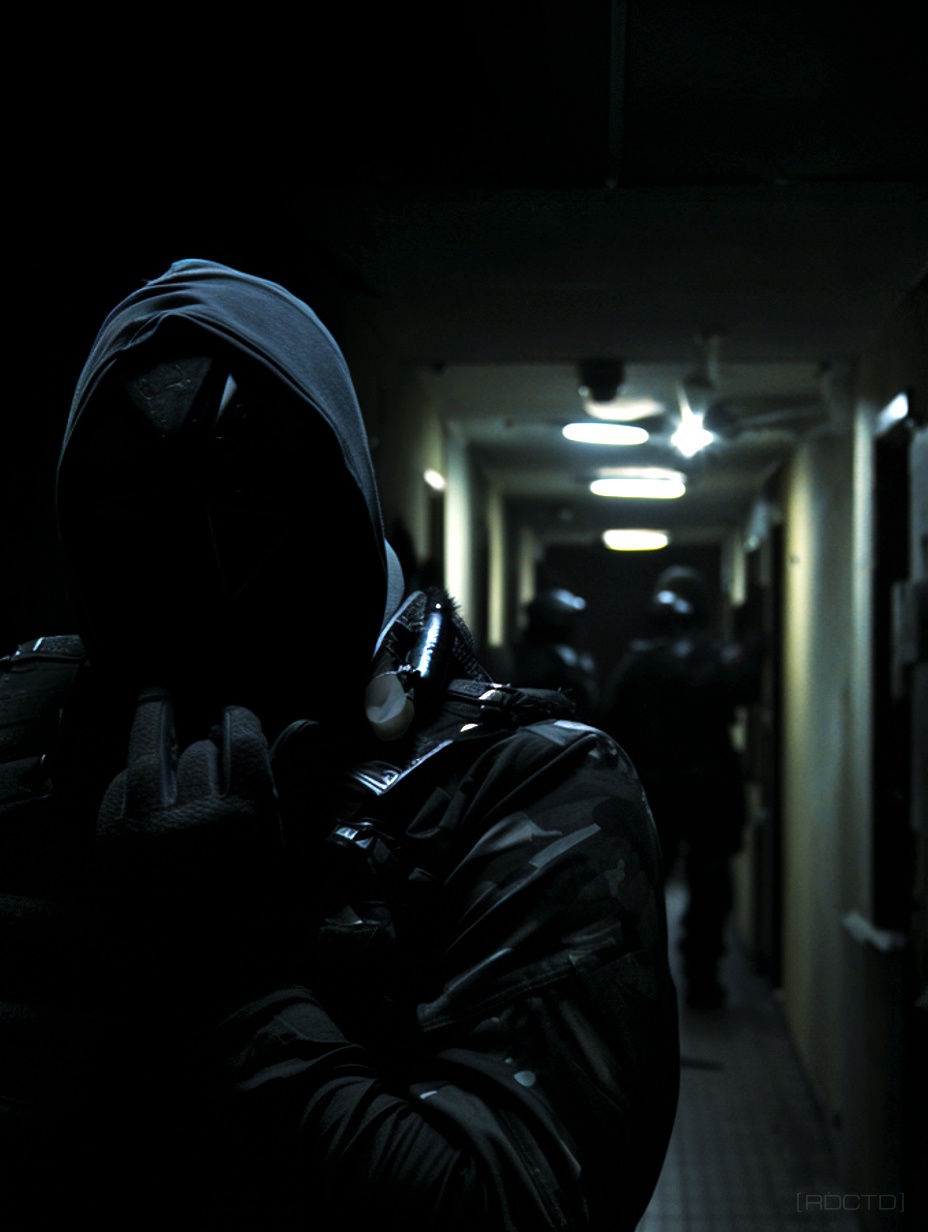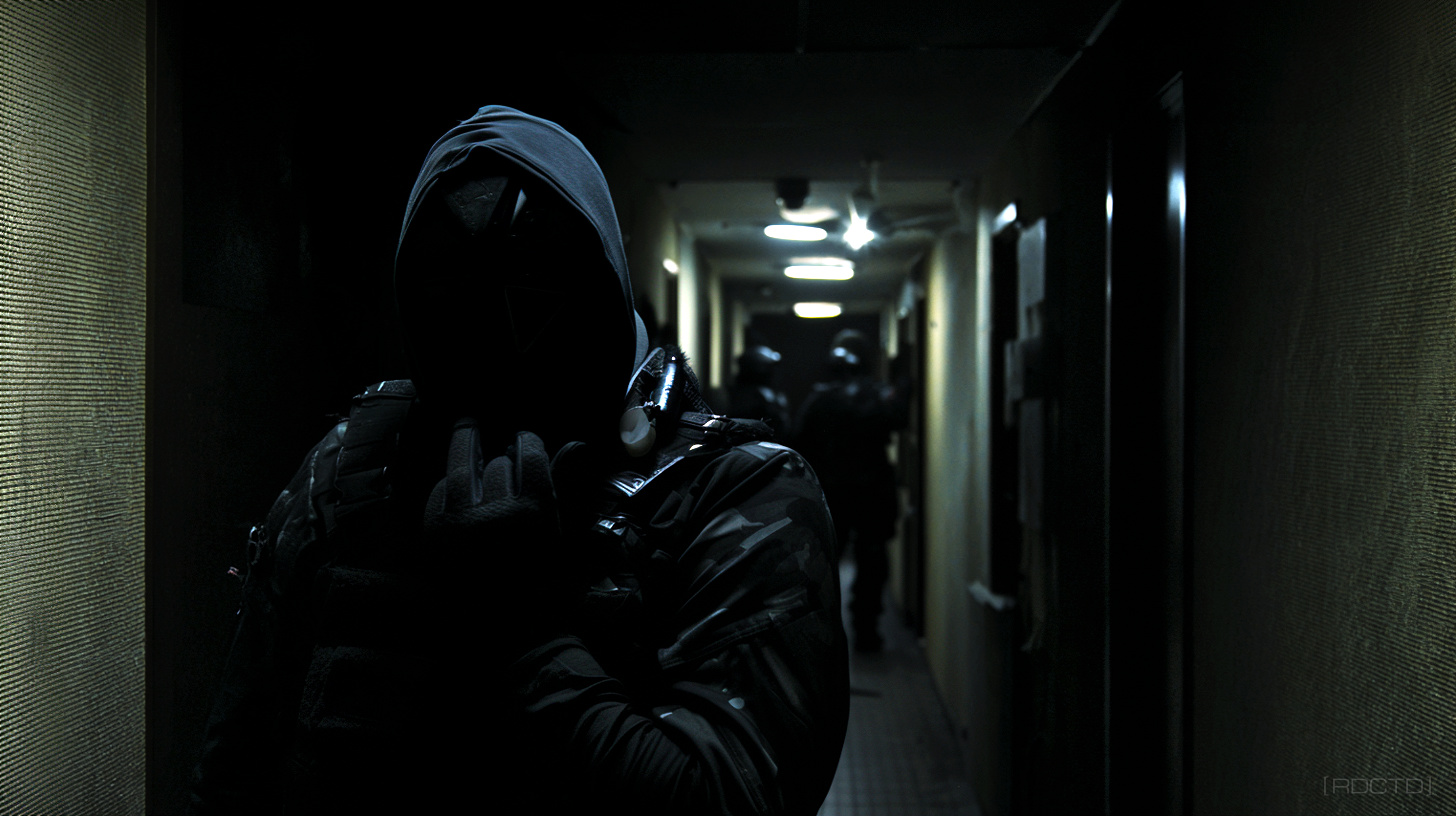 If your gut says no but your ego says yes, go with your gut… It’s always instinct over your ego because intuition is a rapid, experience and data-driven system – ego is emotional, impulsive, and blind to risk.
If your gut says no but your ego says yes, go with your gut… It’s always instinct over your ego because intuition is a rapid, experience and data-driven system – ego is emotional, impulsive, and blind to risk.Intuition is strategic pattern recognition at speed, ego is meaningless self-importance on autopilot.
This is more than a mantra, it’s a tenet of reliable decision-making in high-stakes situations in the field and in everyday life. It speaks directly to the operational balance between intuition and ego, a constant tug-of-war that covert operatives learn to master early. Intuition, often dismissed as superstition by the inexperienced, is in fact a refined sensory tool.
It’s not magic. It’s your subconscious processing environmental patterns, body language, tone, timing, and past experience faster than your conscious mind can articulate – situational awareness. When your gut tightens or you feel a sudden urge to stop, slow down, or reevaluate, that’s your brain flagging something that your conscious ego is too distracted or too proud to notice.
You can train your body, gear up, and plan to the inch – but if you override your instinct, you’re betting against your own system.
Ego, on the other hand, is a noisy advisor. It’s driven by fear of failure, desire for recognition, and emotional pride. It urges action for the wrong reasons; “Don’t back out now or you’ll look weak,” “You can’t afford to hesitate,” or worse, “You’ve got this because you’re smarter than them.”
It thrives on perceived dominance and validation, pushing you to act for status rather than strategy. Ego turns situations into personal contests instead of operational problems to solve. In covert operations, letting ego run the show leads to unnecessary risk, burned covers, or compromised missions.
It makes you ignore variables, rush your timing, or double down when you should be extracting. You never walk into a room just because you told yourself you’re bulletproof or better than the everyone. You walk in because every vector checks out, and your gut hasn’t raised the alarm.
That’s discipline. That’s survival. The moment ego overrides gut, you stop making rational decisions and start gambling with your life and the operation, and eventually, that bet pays out in blood, exposure, or failure.
A calm gut is clearance, a tight gut is a warning.
Good tradecraft is knowing when to trust quiet signals over loud ones. Your instinct doesn’t yell, it nudges. And those nudges build on thousands of silent cues your senses absorb and analyze: facial tension, shifting posture, changes in ambient sound, altering vibes, or spatial inconsistencies you couldn’t even consciously catalog even if you tried.
This is hardwired pattern recognition developed through exposure, repetition, and failure. Operatives who survive and excel are the ones who’ve trained themselves to recognize that inner tension for what it is: early-warning radar. They’ve learned to treat those subtle shifts in feeling not as distractions, but as data – often more reliable than a camera feed or a verbal briefing.
Think of your gut as the first layer of counter-surveillance. It’s what makes you pause at the hotel door when the lighting feels off, or turn around on a walk when your pace doesn’t match the street rhythm. It picks up anomalies before your conscious mind has fully processed the environment.
You don’t need to know exactly why you feel something’s wrong in that moment; you just need to respect that feeling enough to act on it or reassess. Ignoring it in favor of your ego is how you get walked into an ambush, or end up trying to solve a problem that could’ve been avoided entirely.
Ego operates on how things should be, intuition operates on how things are. One’s driven by fantasy and the other by facts.
This doctrine also serves a critical role in self-improvement. For operatives and civilians alike, learning to distinguish between intuition and ego refines decision-making while optimizing behavior. It’s a tactical advantage in all regards and a framework for living intelligently and decisively.
Ego pushes you into the wrong fights, keeps you in bad relationships, and makes you double down when you should be pulling out. It confuses identity with outcome, and turns decisions into emotional wagers. It demands applause and refuses to adapt, even when the terrain has clearly shifted.
Intuition, by contrast, doesn’t care about being right – it cares about staying alive, staying free, and staying on mission. It moves in silence and doesn’t ask for validation. Developing that sensitivity requires humility, constant self-checking, and brutal honesty. It demands that you detach from the need to win every argument or prove every point.
It means practicing internal stillness so you can hear those subtle warnings before they get drowned out by noise, stress, or pride. That quiet awareness isn’t weakness, it’s strategic discipline. Over time, it becomes your edge.
If the decision makes you feel powerful, check if it’s ego talking. If it makes you feel quiet but certain, that’s your instinct.
In the field, this often plays out during pre-contact or high-tension moments. Let’s say you’re scheduled to meet a source, and everything looks clean. The location checks out, comms are quiet, and you’re on time.
But something’s off – too many unfamiliar faces in the area, someone holding a phone at the wrong angle, or your contact shows up with new body language: stiff posture, reduced eye contact, unnatural pacing. Maybe the rhythm of the street doesn’t match what you saw during your previous surveillance runs. Your ego says, “You can’t afford to cancel. You’ll lose face or blow rapport.” It pressures you to press forward, to prove you’re composed and in control.
But your instinct says no. You go with the gut. You postpone. You relocate. You live. That one decision, made without full explanation, preserves operational integrity. It’s not cowardice or weakness, it’s adaptive risk management grounded in tradecraft and long-term success. In this line of work, restraint is never failure, ignoring the signal is.
When something feels wrong and your ego wants to push through, that’s not bravery – it’s blindness.
This phrase is a discipline. It teaches that self-trust isn’t about blind confidence but calibrated instinct. For operatives, this is survival training. For civilians, it’s a way to make smarter decisions in work, relationships, and PERSEC. Trust your instinct – not because it’s mystical, but because it’s efficient, tested, and built to detect what your ego is too arrogant to see.
![]()
// Ego is driven by status and instinct is driven by strategy.
[INFO : CIA ‘Killer’ Instincts]
[OPTICS : Operative VS Enemy Assets]
![[RDCTD]](https://rdctd.pro/wp-content/uploads/RDCTD-Covert-Operative-Tradecraft-Guide-LOGO-tk.png)
![[RDCTD]](https://rdctd.pro/wp-content/uploads/RDCTD-Covert-Operative-Tradecraft-Guide-LOGO-mobile.png)
